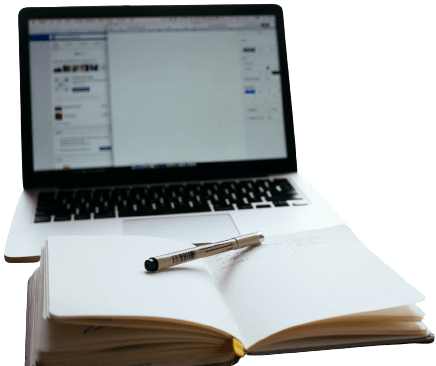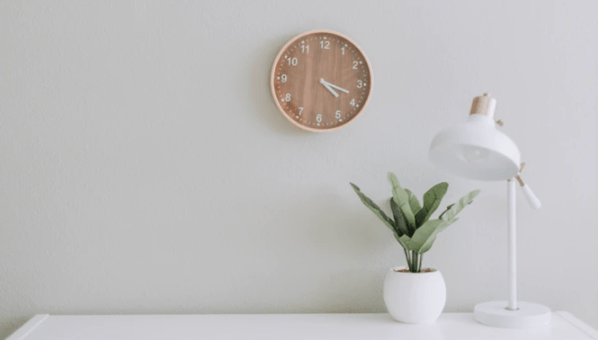
Whether you want to take big or little steps, make fast or steady progress, this list of 31 ways to improve your nutrition and physical and mental health will help.
Nutrition
Drink more water. A good target is half your weight in ounces. So if you weigh 150 pounds, aim to drink 75 ounces a day. I find I drink more when it’s ice cold, I’m using a straw and I add frozen strawberries for a bit of flavor.
Be mindful as you eat. Slow down your pace of eating. Whether that’s chewing longer than usual, putting your utensil down between bites or turning off the TV or laptop screen, you might find yourself full sooner or feeling less bloated as a result.
Know portion sizes. Now it’s hard to eat too much salad, but knowing what a serving size of meat and especially carbs are is helpful. It’s the reason Italians can eat pasta everyday without becoming obese.
Eat fruits or vegetables with every meal. Sometimes it’s best to add foods versus removing them. Challenge yourself to incorporate more produce (fresh or frozen) into your meals and snacks.
Drink less caffeine. Whether it’s good ole fashioned coffee or an ice cold soda, caffeine can negatively impact sleep, anxiety, focus and even cause headaches or stomachaches. Less is more.
Go vegan one day a week. This is less about nutrition and more about pushing yourself to try something new, specifically recipes and snacks that don’t incorporate meat or dairy. Even if you don’t commit to vegan for a specified time frame, you’ll introduce new foods and recipes and a diverse diet is a healthy diet.
Cut back on sugar. If you can manage to lower you intake even just for a few days, you’ll find the super sweet stuff (like cookies and chocolate) are too much and therefore easier to avoid.
Cut back on salt. Do you frequently feel bloated? Salt may be to blame. Reduce salt to reduce the bloat and feel lighter.
Focus on fiber. Fiber not only keeps you feeling full but it’s also good for your digestive system. Whole grains and your green vegetables are great natural sources of fiber.
Load up on protein. Like fiber, protein is a good macro to focus on. Challenge yourself from the typical sources of meat to try things like tuna, eggs and seeds and nuts.
Eat breakfast. Even if it’s something small, it gets your metabolism started and will provide consistent energy throughout the day.
Try a new recipe. Whether it’s a new take on something you already love (like swapping ground turkey in place of ground beef for your Bolognese) something completely outside of your comfort zone, you don’t just up your cooking game but feel a little more confident and ambitious in general.
Use the terrific trio to meal plan. Sometimes deciding what to make for dinner can feel like an overwhelming mental task. But if you use the terrific trio model, it’s much more manageable.
Physical Health
Get enough sleep. Experts recommend 7-9 hours per night. It’s not only important that you get the right amount, but that it’s consistent. Try to fall asleep and wake up at the same times everyday.
Do a 10 minute HIIT (high intensity interval training) workout. HIIT workouts are great for combining cardio and strength training at home without equipment.
Strength train for 10 minutes. Not feeling up to jumping around and getting your heart rate up for your workout? Strength training is just as important for your health and can easily be done, even without equipment.
Go for a walk. Whether it’s at lunch to break up the day or after work hours to transition from work mode to home mode, the fresh air, sunshine and increase in heart rate all provide a multitude of health benefits.
Schedule your annual eye exam. Many of us spend all day looking at screens and that can take a toll on our eyes. Get an eye exam every year to keep your eyesight 20/20.
Schedule your annual dental cleaning and exam. Maintain those pearly whites at least once a year.
Schedule your annual physical exam. Even if you feel healthy, seeing your primary care physician once a year for your physical helps establish your baseline levels for important markers (like blood pressure, cholesterol, etc.) to catch any potential issues early.
Clean out and restock your medicine cabinet. Toss anything that is expired and make sure you have everything you’d need in the event of unforeseen illness or injury. Check out our list of Ten Items You Should Have in Your Medicine Cabinet here.
Do a face mask. Whether it’s a sheet mask or a mud that you apply, a face mask is helpful in moisturizing your skin and providing the nutrients and minerals to keep your skin feeling healthy.
Take the stairs or park farther away. It’s the little things that start to add up.
Mental Health
Make a To Do list. Ideally you do this before you leave work or go to bed at night. It’s a quick and easy way to reduce stress and anxiety, allowing you to be present or rest peacefully.
Meditate for 5 minutes. There are a variety of apps and podcasts that can walk you through a simple meditation. Experiment with time of day (when you wake or before going to bed) and style. Some ask questions or encourage specific thoughts while others are more focused on simply relaxing and breathing.
Journal for 5 minutes. Some people just write freely. I like to note something my child did or said for the first time or a funny story about the day – whatever approach you take, good ole fashioned pen and paper journaling is relaxing.
Do 10 minutes of yoga. Yoga is great for both physical and mental health. I find the stretching aspect alone makes me stand a little taller and move a bit more gracefully, which is a confidence booster and provides a sense of inner calm.
Limit social media. Setting screen limits on your social media apps literally means spending your time and attention on something more productive.
Use the unfollow option. This is a favorite of mine. On Facebook, for example, you can snooze someone for 30 days or hide them until further notice. I find this especially useful for family members who are quite opinionated but would be offended if they didn’t get to see photos of my little ones.
Write down 20 things you are grateful for. The first five or ten might come easy, but getting to 20 helps you start to pick up on the little things – crisp, fresh air, a delicious meal or a conversation.
Do an act of kindness. It can be anonymous and for a stranger (like paying for the next person’s coffee at Starbucks) or personal and thoughtful, like making your partner’s favorite meal for dinner. Either way, it’s good for your perspective to give to another without expectation of receiving something in return.
Bonus tip!
Create a bedtime routine. This one, like yoga, is beneficial for both mental and physical health. If you need ideas, check out our article 11 Ways to Improve Your Bedtime Routine.
If you liked this article, you may also like:
Adulting, Made Easy.
Our online courses help you take the steps to be your happiest, most successful self at home and at work.




